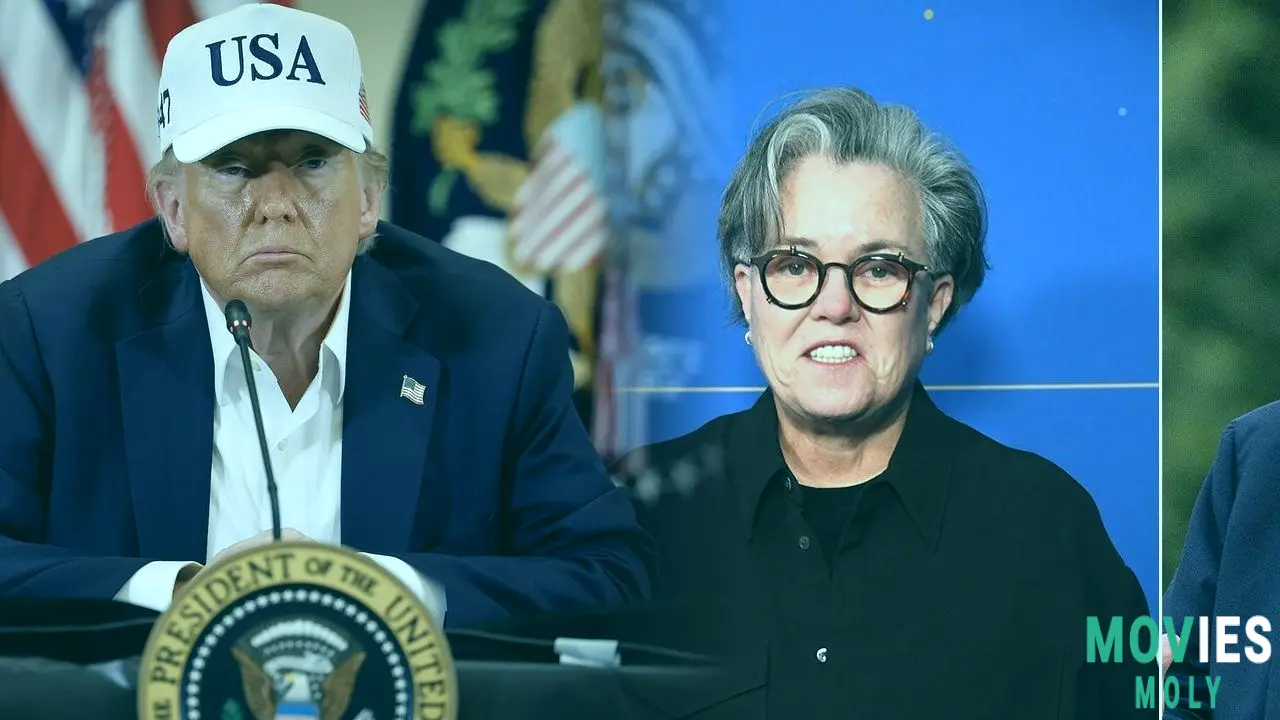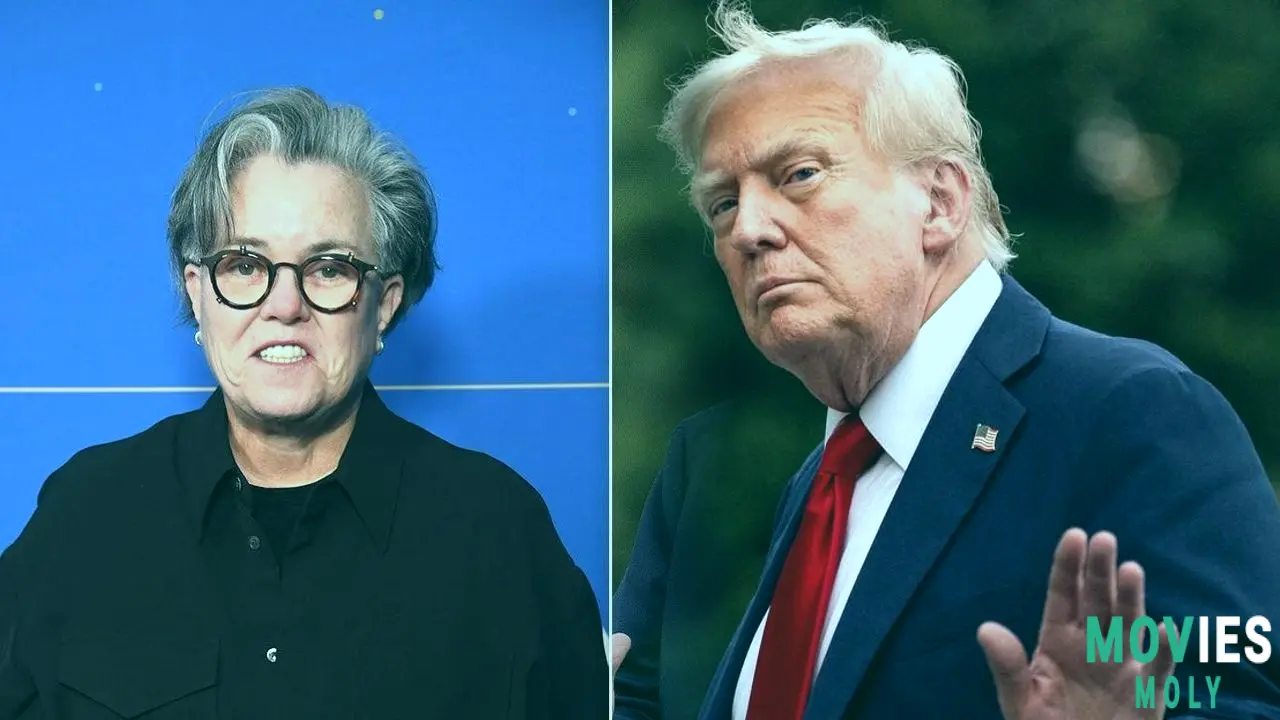The long-running public fight between Donald Trump and Rosie O'Donnell has gotten really bad. Trump recently said he would take away O'Donnell's US citizenship. This has caused a lot of debate and highlighted questions about the president's power and constitutional rights. This new statement comes after O'Donnell moved to Ireland and kept criticizing the former president. The case shows not simply a personal rivalry, but also bigger issues about free expression and the safety of citizenship in a democracy.
The newest spark: Trump's Truth Social StatementDonald Trump's article on his Truth Social platform started the recent escalation. He said he was "giving serious consideration to taking away her Citizenship" because Rosie O'Donnell "is not in the best interests of our Great Country." Trump also called her "a Threat to Humanity" and said that "if they want her, she should stay in the wonderful Country of Ireland."
It looked like this public declaration was a direct response to O'Donnell's recent criticism of the Trump administration. She put a video on TikTok about the terrible floods in central Texas and said that Trump "gutted all of the early warning systems and the government's ability to forecast the weather."
Rosie O'Donnell's Honest Answer: "I'm Everything You Fear"

Trump's threat got Rosie O'Donnell to respond right away. She put a picture of Trump with Jeffrey Epstein, a convicted sex offender, on her Instagram. O'Donnell explicitly confronted Trump in her message, saying who she was and that she would never back down.
You say I'm a menace to mankind, yet I'm everything you fear: a loud woman, a gay woman, a mother who tells the truth, and an American who left the country before you set it on fire.
She kept being defiant by comparing Trump to a character from a well-known fantasy series.
You want to take away my citizenship? King Joffrey with a tangerine spray tan, go ahead and try.
O'Donnell also went on Irish radio to say the same thing again.
I am quite proud that I disagree with everything he says, does, and stands for.
Her strong answer got a lot of support, even from Ellen DeGeneres, a comedian who doesn't often talk about politics. DeGeneres posted O'Donnell's answer on Instagram with the comment "Good for you, Rosie."
Can a President Take Away Citizenship? The Truth About the Constitution

US law does not support the idea that a president can take away the citizenship of a native-born American citizen on their own. Legal tradition and constitutional scholars agree that birthright citizenship is safe.
What the 14th Amendment Means
The 14th Amendment to the Constitution, which was ratified in 1868, is the basis for US citizenship. The Citizenship Clause, which is the first sentence, says, "All persons born or naturalized in the United States, and subject to the jurisdiction thereof, are citizens of the United States and of the State wherein they reside." This amendment was passed after the Civil War to give citizenship to people who had been slaves and to make sure that everyone born in the US, no matter what race, was a citizen.
Important Supreme Court Cases: Afroyim v. Rusk
Afroyim v. Rusk (1967) was an important Supreme Court case that made it clear that native-born citizens cannot be forced to give up their citizenship. Beys Afroyim, a naturalized citizen, was the subject of the case because his citizenship was questioned after he voted in an Israeli election. The Court said that Congress can't take away someone's US citizenship unless that person chooses to give it up.
The people are in charge of our country, and the government can't cut ties with them by taking away their citizenship.
This decision made it clear that citizenship is a constitutional right, not a privilege that the government can take away.
Renunciation by choice vs. stripping by choice
People can opt to give up their US citizenship, but they have to go through a formal, voluntary process with the State Department. A president can't just use this power whenever they want. Involuntary denaturalization, which is the process of taking away someone's citizenship, is quite rare for those who were born in the US. Naturalized citizens can only lose their citizenship in very rare situations, such as if they got it through fraud or lying on their application. The government needs to show clear, convincing, and unambiguous proof of this kind of deception. You can't lose your citizenship just because you disagree with a president or criticize them.
Expert Legal Opinions on the Power of the President
Lawyers all agree that Trump's threat against O'Donnell doesn't mean anything legally. Amanda Frost, a lecturer at the University of Virginia School of Law, said:
The president can't take away the citizenship of a US citizen who was born here.
She went on to say that in the US, the people select the government, and the government can't pick the people. The Department of Justice has recently put more effort into denaturalization proceedings. However, these actions are mostly against naturalized Americans who got their citizenship through fraud, not people who were born in the US.
A Timeline of Trump and O'Donnell's Long-Lasting Feud

Donald Trump and Rosie O'Donnell have hated each other for almost 20 years. Their public fights started in 2006 when O'Donnell, who was then a co-host on "The View," lambasted Trump for how he handled a Miss USA winner's controversy. She asked him about his "moral compass" and branded him a "snake-oil salesman." Trump insulted him in a very personal way.
As Trump got into politics, the rivalry grew stronger. In public speeches and discussions, he kept going after O'Donnell. O'Donnell, on the other hand, kept speaking out against Trump and his policies. Part of the reason she moved to Ireland in January, just before Trump's second inauguration, was because of the political climate in the US. She said she would come back "when it is safe for everyone in America to have the same rights."
Trump's Pattern of Attacking Critics, Beyond Rosie

Rosie O'Donnell is hardly the only one Trump has threatened. He has a history of going after those who criticize him and often suggests legal or punitive measures against them. He has thought of taking away the citizenship of people who became Americans through naturalization, like Elon Musk and Zohran Mamdani, who is running for mayor of New York. Musk and Mamdani are both naturalized citizens, and it is possible to lose your citizenship in some circumstances of fraud. However, disagreeing with someone politically is not a good reason to do this. The Trump administration has also pushed for more denaturalization proceedings, but these are mostly against those who are said to have lied on their applications.
These kinds of threats can be scary, even if they don't have any legal basis. They make it hard for public leaders and regular people to speak out against them because they are afraid of what would happen if they do. This way of thinking about citizenship and free speech makes them seem conditional and at the mercy of political power.
It seems like Trump thinks that both free speech and being a citizen of the United States are things he can take away whenever he wants.
The Bigger Effects on Democracy and Free Speech

Threats against Rosie O'Donnell and other critics are bad for freedom of speech and the health of democracy. The First Amendment preserves the right to speak your mind, even if you're criticizing government leaders. When a president says that speech should be punished by taking away citizenship, it weakens this basic right.
The Chilling Effect on Political Dissent
Statements like this from the president might scare people and make them less likely to speak out against the government, even if they are not legally valid. This has a psychological effect, making people feel like they need to edit themselves to avoid being targeted. The activities of these people are also being watched by the rest of the world, which may see them as a break from democratic standards that protect free speech and citizenship.
Knowing Your Rights: What US Citizenship Does for YouCitizenship is a firmly entrenched constitutional right for those who live in the US, especially those who were born there. A president can't take it away just because they don't agree with it or criticize it. The 14th Amendment and Supreme Court decisions offer strong protections against losing citizenship without wanting to. People have the freedom to free speech, to speak out against their government, and to talk about politics without worrying about losing their citizenship.
If a person gets threats about their citizenship, it's crucial to know about these fundamental protections and get legal help. The law lets people fight any attempts to take away their citizenship without following the rules, which supports the idea that the people are in charge in the US.






